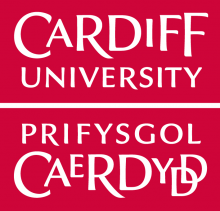There has been a lot of attention paid to how the Covid-19 pandemic is affecting undergraduates and academics – not to mention university chief financial officers. But doctoral students have received much less attention.
To be fair, UK Research and Innovation recently announced a costed extension of up to six months for all final-year doctoral students it funds. According to the UK’s science minister, Amanda Solloway, this will “give students who have spent years on their research…certainty that they will complete their courses in spite of the disruption caused by this outbreak”.
But while the announcement is welcome, it also indicates a lack of engagement with doctoral students overall. The majority of students, who are not in their final year, have been left questioning why they are not deserving of “certainty” too.
Recent survey data have revealed the impact that the disruption has had on UK PhD students. The lockdown has affected the work of 95 per cent of respondents, but it disproportionately impacts those in key stages of their research, such as data collection. “Research restrictions” are facing 60 per cent of respondents, and almost 20 per cent are considering leaving their PhD. One of the latter explained that “without answers, reassurances and/or support from the funding body and the university, I really can’t see how I could [continue]”.
Guidance has focused on encouraging students to “adjust” their research projects. While it has the best interests of (some) PhD students at heart, this, again, seems to fundamentally misunderstand the nature of doctoral research. Less than 20 per cent of survey respondents feel that it is “very feasible” to adjust their research. Comments suggest that many may already have invested financially in data collection, which is now cancelled, or cannot quickly rearrange work that originally took many months to plan and organise.
The failure to provide universal reassurances of funding extensions will only contribute to the stress of PhD students, who are particularly prone to mental health issues even in normal times. Such assurance would, as one student explained, “crucially allow me to use the time to focus on my own well-being”. Forcing students to choose between their studies and their well-being is unacceptable.
Some student demographics are experiencing particular difficulties. These include those who have chosen to directly support the fight against Covid-19, disabled students and those who have been forced to assume childcare and/or caring responsibilities (who account for 25 per cent of respondents). Yet even these students can’t temporarily pause their studies because this would stop their financial support and also lose them precious time in a PhD funding period that, in the UK, is already unduly short.
Students from overseas have also expressed concerns about their future visa status, while under-represented groups, such as working-class and BAME PhD students, as well as women in science subjects, are also likely to be impacted, exacerbating existing inequalities.
As well as committing to blanket financed extensions for all PhD students, of a duration updated in accordance with the public health advice, UKRI should commit to an equalities impact assessment investigating the effects of the lockdown on particular student groups. Universities, meanwhile, should suspend fees for students currently outside their funded period and those self-funding, and enhance the pastoral and mental health support they make available to PhD students.
Doctoral students are asking for a supportive policy that recognises the commitment they are putting into their studies. Failure to support students will have long-term implications not only for higher education and student well-being but also for national R&D competitiveness and the communities benefited by the research being (or not being) conducted.
UKRI and the government need to start working with PhD students to create an effective mechanism to support those who have made a long-term investment in their own and the nation’s future by undertaking doctoral work. Shirking on that for the sake of short-term government finances is a very poor investment for everyone concerned.
Ross Goldstone is a PhD candidate at Cardiff University and a student representative on the Wales Doctoral Training Partnership. He is also the only student member of the Economic and Social Research Council’s social science PhD steering group.
Register to continue
Why register?
- Registration is free and only takes a moment
- Once registered, you can read 3 articles a month
- Sign up for our newsletter
Subscribe
Or subscribe for unlimited access to:
- Unlimited access to news, views, insights & reviews
- Digital editions
- Digital access to THE’s university and college rankings analysis
Already registered or a current subscriber?










